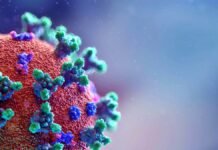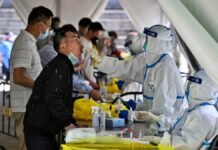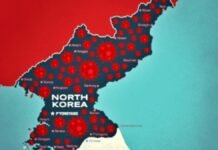
Key Points
- Active Covid-19 cases in India have surpassed 7,000, with a sharp increase in daily infections and deaths.
- Kerala remains the most affected state, followed by Gujarat, Delhi, West Bengal, and Maharashtra.
- Six Covid-related deaths were reported in the last 24 hours, mainly among the elderly and those with pre-existing health conditions.
- The surge is driven by new Omicron sub-variants, which are more transmissible but tend to cause milder symptoms.
- Health authorities advise continued use of masks, hand hygiene, and social distancing, especially for high-risk groups.
New Delhi: India is witnessing a significant resurgence in Covid-19 cases, with the active caseload surpassing 7,000 as of June 12, 2025. The country reported 306 new cases and six deaths in the last 24 hours, according to the Ministry of Health and Family Welfare. This marks a worrying trend, as daily infections now range between 200 and 300, and the death toll continues to climb.
Kerala, Gujarat, and Delhi Lead the Surge
Kerala continues to top the Covid-19 charts, reporting 2,223 active cases and 170 new infections in a single day. Gujarat follows closely with 1,223 active cases and 114 new cases, while Delhi’s active caseload has reached 757. Other states such as West Bengal and Maharashtra are also experiencing a steady rise in cases, with Maharashtra recording the highest cumulative death toll at 18 since January.
Deaths Primarily Among Elderly and Vulnerable
Of the six fatalities reported in the last 24 hours, three were from Kerala, two from Karnataka, and one from Maharashtra. Most of the deceased were elderly or had underlying health conditions, such as respiratory or chronic diseases. For instance, a recent death in Delhi involved a 90-year-old woman with significant comorbidities, highlighting the heightened risk for vulnerable populations.
New Omicron Sub-Variants Drive Infections
The current surge is attributed to the spread of new Omicron sub-variants, including JN.1, NB.1.8.1, LF.7, and XFC. These variants are known for higher transmissibility but generally cause milder symptoms compared to earlier strains. The World Health Organization currently classifies these as “Variants Under Monitoring,” indicating a need for vigilance but not immediate alarm.
Government and Health Experts Urge Caution, Not Panic
Despite the rising numbers, the Health Ministry and medical experts have emphasized that there is no need for public panic. Instead, they recommend heightened caution, especially for high-risk groups such as the elderly, immunocompromised, and those with chronic illnesses. Preventive measures—such as wearing masks, practicing hand hygiene, and avoiding crowded spaces—remain crucial.
Health experts have also advised against mass booster vaccination campaigns at this time, citing widespread hybrid immunity from previous infections and vaccinations. Instead, they suggest targeted protection for the most vulnerable segments of the population.
Statewise Snapshot of Covid-19 Situation
| State/UT | Active Cases | Total Deaths | New Cases (24h) | Deaths (24h) |
|---|---|---|---|---|
| Kerala | 2,223 | 16 | 170 | 3 |
| Gujarat | 1,223 | 2 | 114 | 2 |
| Delhi | 757 | 8 | 66 | 1 |
| Maharashtra | 615 | 18 | 117 | 1 |
| West Bengal | 747 | 1 | 58 | 1 |
Data as per latest available government sources.
Government Readiness and Public Advisory
The central government has issued advisories to all states and union territories, urging them to remain vigilant and ensure readiness of healthcare infrastructure. Mock drills have been conducted in hospitals nationwide to assess preparedness for a possible further surge.
The Indian Medical Association and health authorities reiterate the importance of distinguishing Covid-19 from other seasonal viral fevers, and urge immediate medical attention for vulnerable individuals if symptoms develop or worsen.
Precautions: What You Should Do
- Wear a mask in public places and maintain social distancing.
- Practice regular hand hygiene.
- Avoid crowded and poorly ventilated spaces.
- High-risk individuals should seek medical care promptly if symptoms arise.
While the overall severity of the current wave appears lower than previous surges, the rapid increase in cases and deaths among vulnerable groups underscores the need for continued vigilance and responsible public behavior.


















































